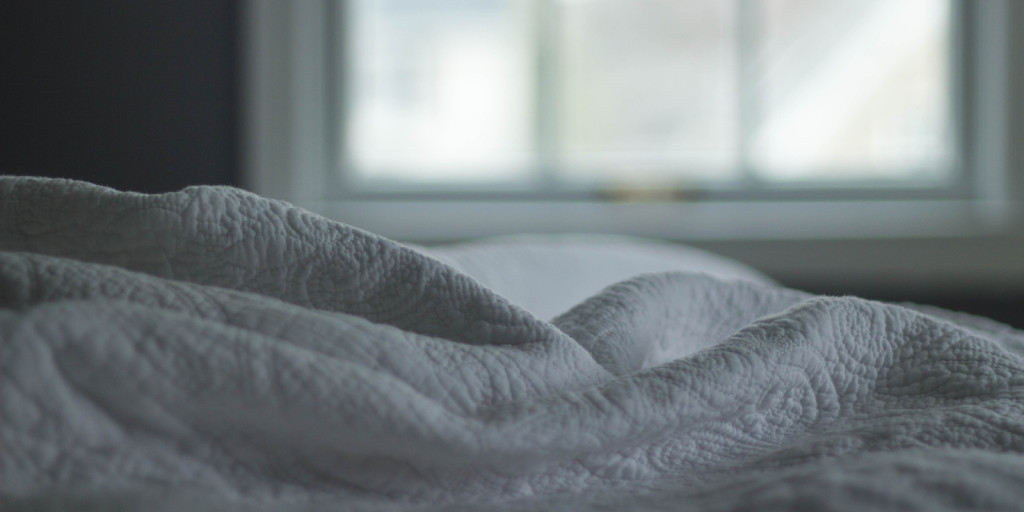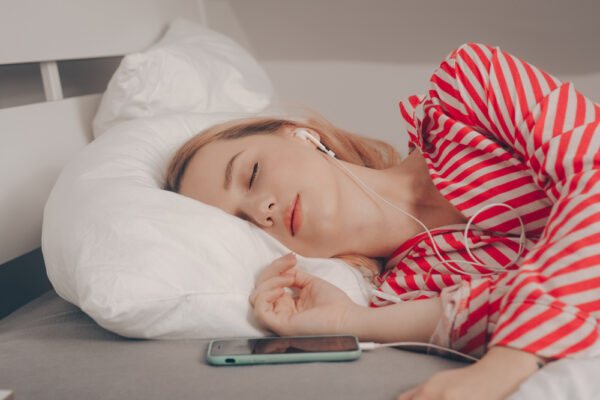I think we can safely say that we all love and need sleep. How would we function properly without it, right? Our body runs like a clock, we know when we need to eat, drink and rest – this is known as the circadian rhythm which we’ve mentioned in a few of our previous articles. For a more technical explanation, it is a 24-hour internal clock that runs in the back of our brains and cycles between sleep and alertness at regular intervals. It’s also known as our sleep and wake cycle.
Although our bodies are quite intelligent, there are quite a few of us that have trouble drifting off each night and it could be down to mental health problems, not just bad
mattress issues!
Now, mental health is a very broad topic and there is a social stigma attached to it that is quite severe. In this article we’re going to have a look at how mental illnesses can affect our sleeping patterns, and vice versa. It’s time to change attitudes towards mental health, so we hope this article provides you with a better insight and more knowledge regarding mental health well being and our sleep!
How Important Is Sleep?
Sleep plays an important role in our physical health, as well as our mental health. During sleep, our body works to support healthy brain function, because when we’re asleep, the brain is already preparing for the next day ahead. It’s simply one step ahead forming new pathways to help us learn and remember information that is passed to us. So, if you ever feel like your body isn’t taking care of you, remember it’s far more impressive and powerful than we actually realise.
A
new study that was carried out found key signs for a healthy sleep. The research shows that if you fall asleep within 10 – 15 minutes, you’re likely to have good sleep health, whereas if it takes you longer than 15 minutes, there might be a few issues.
How long does it take you to fall asleep?
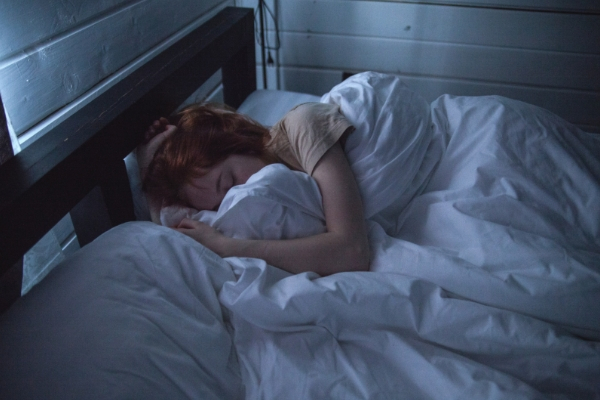 When it comes to sleep and physical health
When it comes to sleep and physical health, it is able to maintain a healthy balance of hormones which make us feel hungry (referred to as ghrelin) or full (leptin). If we aren’t well rested, the level of ghrelin increases and the level of lepin reduces. There are many things that can affect us physically if we don’t get enough
sleep – the risk of obesity, higher blood sugar level which increases risk for diabetes and immune system failures are just a few.
When it comes to sleep and mental health, the pair are quite closely connected. Sleep deprivation has an impact on our psychological state and mental health, which makes it difficult when we have to perform normal daily functions. This could include having trouble making decisions, problem solving and controlling behaviour or emotions. Individuals who already suffer from mental health problems are more likely to experience insomnia and other sleep disorders.
Mental Illnesses Related To Sleep
Depression – a common sign of depression is insomnia or oversleeping. A
study was carried out which found that sleep disruption is a driving factor in the occurrence of paranoia, hallucinations and other mental health issues in young adults, the average being 25. If you experience negative or troubling thoughts, it can lead to insomnia.
Anxiety disorders –
anxiety is known as a feeling of worry or nervousness. It’s a natural response to stress and has the potential to lead to panic attacks. Anxiety can affect people differently and is often described as a disconnection between the mind and body. When asleep, racing thoughts and panic is what leads to lack of sleep. There are ways to control anxiety and reduce symptoms, such as meditation and exercise.
Bipolar disorders – bipolar disorder is also known as manic depression and is characterised by extreme mood swings. People who suffer from
bipolar disorders can either sleep too much or not at all. A short night’s sleep has the potential to trigger manic and hypomanic episodes.
Stress – stress has many ways of negatively impacting your life, and this includes lack of sleep. Experiencing
stress and poor-quality sleep is a cycle that can be difficult to break. If we don’t sleep enough, the body increases it’s stress hormones. There are brain chemicals that are connected with deep sleep, and these are the same ones that tell the body to stop the production of stress hormones.
Ultimately, when we can’t sleep, our body just keeps pumping the hormones the next day, which then leads to more stress, and the cycle repeats itself until we manage the stress efficiently and effectively.
Tips For A Better Night’s Sleep
Overall, lack of sleep has a negative impact, both physically and mentally. It’s important to take care of ourselves and keep our bodies healthy. The infographic below shares some effective and beneficial sleep tips to ensure you get the sleep you need, and to help with your mental health.
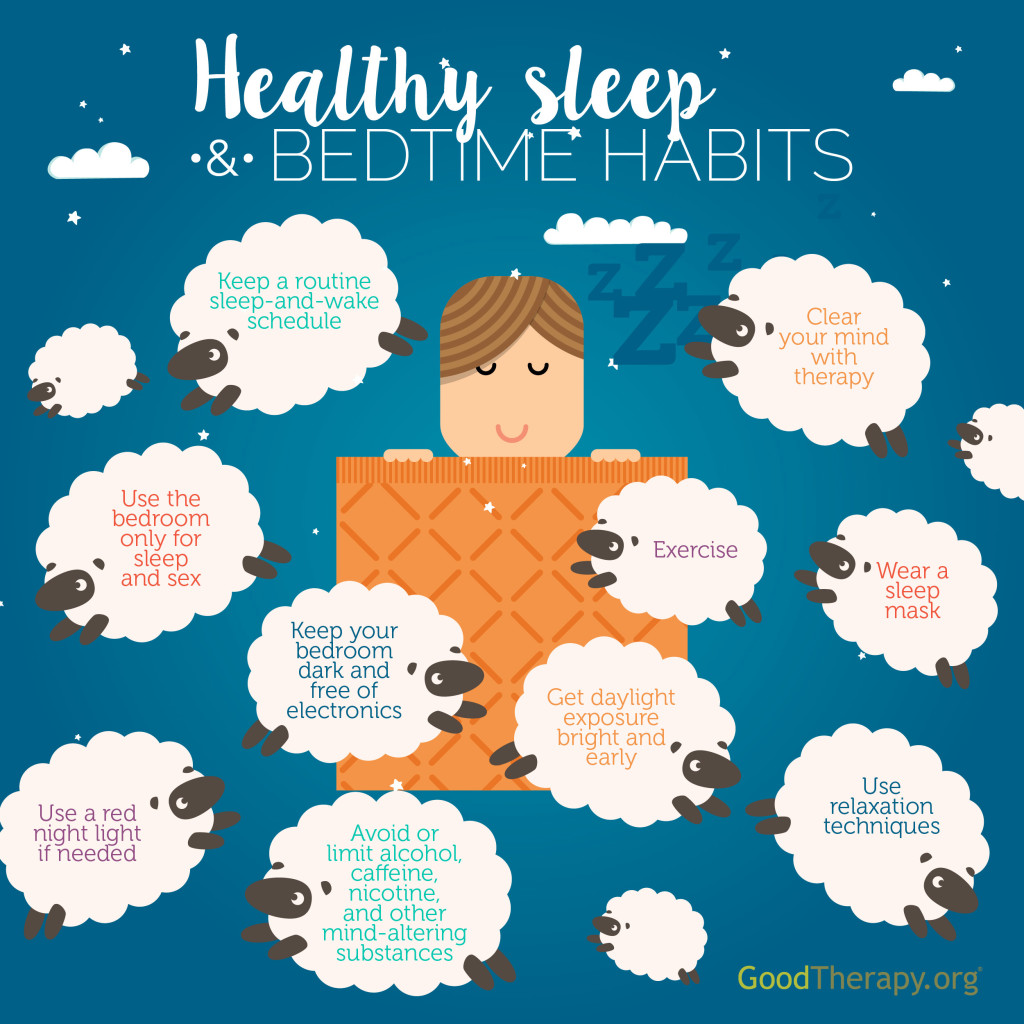
Please see below for useful helplines if you’re experiencing anything we’ve discussed in this article. Don’t forget to join the #timeforchange and #mentalhealthawareness movement to show your support.
The Mental Health Foundation – A foundation with a focus to help people understand, protect and sustain their mental health.
Time to Change – An ambitious program to end mental health discrimination
Bipolar UK – A great charity focusing on bipolar disorder and manic depression
Mind – Helping people to take control of their mental health through promoting, campaigning and providing a hotline to provide confidential help.
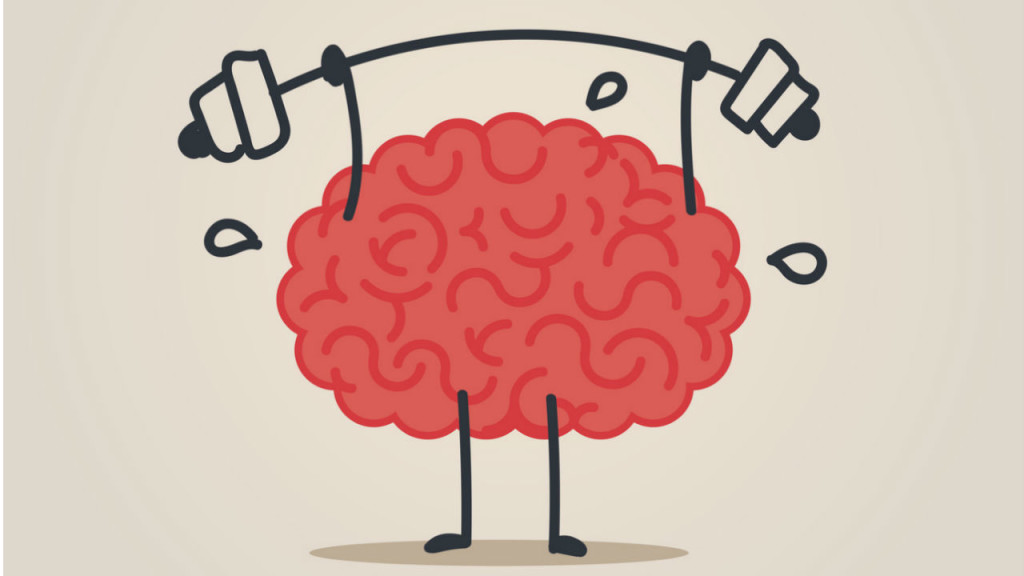
 When it comes to sleep and physical health, it is able to maintain a healthy balance of hormones which make us feel hungry (referred to as ghrelin) or full (leptin). If we aren’t well rested, the level of ghrelin increases and the level of lepin reduces. There are many things that can affect us physically if we don’t get enough sleep – the risk of obesity, higher blood sugar level which increases risk for diabetes and immune system failures are just a few.
When it comes to sleep and mental health, the pair are quite closely connected. Sleep deprivation has an impact on our psychological state and mental health, which makes it difficult when we have to perform normal daily functions. This could include having trouble making decisions, problem solving and controlling behaviour or emotions. Individuals who already suffer from mental health problems are more likely to experience insomnia and other sleep disorders.
When it comes to sleep and physical health, it is able to maintain a healthy balance of hormones which make us feel hungry (referred to as ghrelin) or full (leptin). If we aren’t well rested, the level of ghrelin increases and the level of lepin reduces. There are many things that can affect us physically if we don’t get enough sleep – the risk of obesity, higher blood sugar level which increases risk for diabetes and immune system failures are just a few.
When it comes to sleep and mental health, the pair are quite closely connected. Sleep deprivation has an impact on our psychological state and mental health, which makes it difficult when we have to perform normal daily functions. This could include having trouble making decisions, problem solving and controlling behaviour or emotions. Individuals who already suffer from mental health problems are more likely to experience insomnia and other sleep disorders.
 Please see below for useful helplines if you’re experiencing anything we’ve discussed in this article. Don’t forget to join the #timeforchange and #mentalhealthawareness movement to show your support.
The Mental Health Foundation – A foundation with a focus to help people understand, protect and sustain their mental health.
Time to Change – An ambitious program to end mental health discrimination
Bipolar UK – A great charity focusing on bipolar disorder and manic depression
Mind – Helping people to take control of their mental health through promoting, campaigning and providing a hotline to provide confidential help.
Please see below for useful helplines if you’re experiencing anything we’ve discussed in this article. Don’t forget to join the #timeforchange and #mentalhealthawareness movement to show your support.
The Mental Health Foundation – A foundation with a focus to help people understand, protect and sustain their mental health.
Time to Change – An ambitious program to end mental health discrimination
Bipolar UK – A great charity focusing on bipolar disorder and manic depression
Mind – Helping people to take control of their mental health through promoting, campaigning and providing a hotline to provide confidential help.

